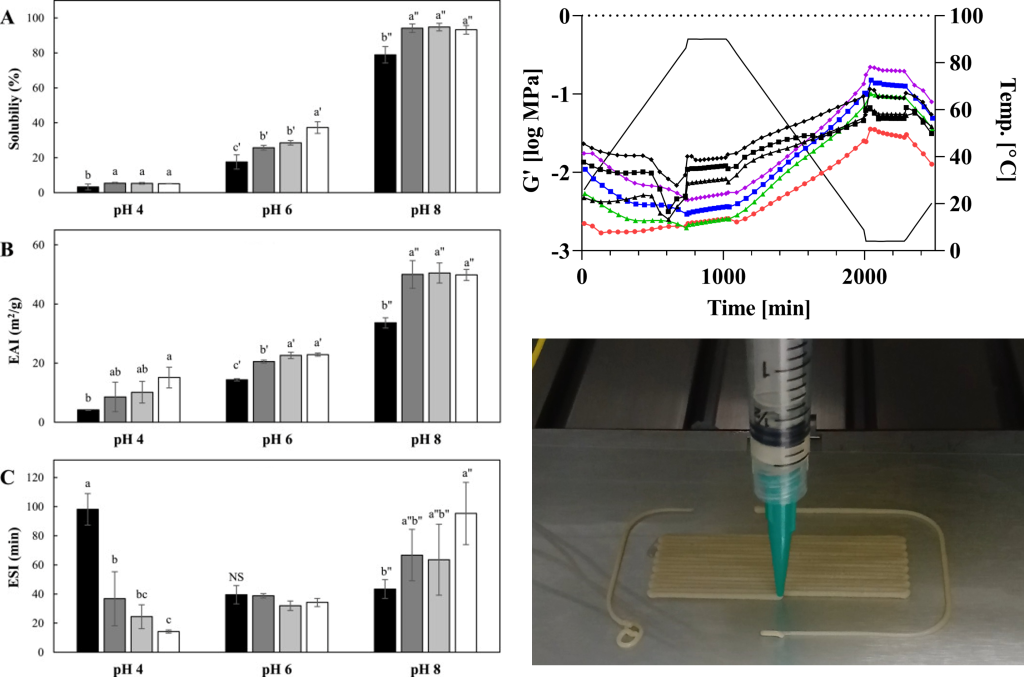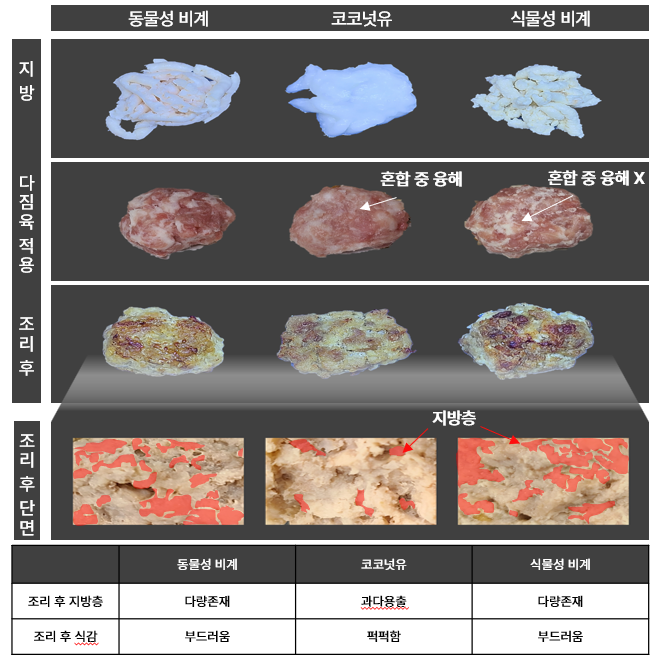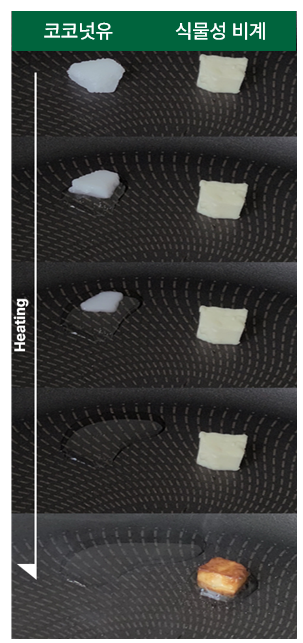Plant-based protein / fat alternatives
- Alternative protein
The increasing demand for animal-based protein has raised environmental concerns as well as ethical and religious issues, driving research into alternative meat products. Plant-based meat substitutes, characterized by their fibrous structure resembling animal muscle fibers, high water absorption and retention capacity, and good biological digestibility, have been proposed as viable alternatives to conventional animal meat. Although research on plant-based meat substitutes is actively conducted in South Korea, studies utilizing diverse raw materials remain limited.
For consumers, texture and flavor are the most critical factors in alternative meat development. The texture of alternative meat products can be analyzed using rheometers and texture analyzers. Additionally, 3D printing technology, which layers raw materials to control the texture and shape of food, can be applied as a food manufacturing method to mimic animal muscle fibers. By adjusting the physicochemical properties of food-grade 3D printing inks, stable layering can be achieved, enabling the production of plant-based alternative meats with textures similar to animal muscle fibers through appropriate post-processing. Sensory evaluation involving human participants can further validate the mechanical analyses of these alternative meats.
Our laboratory aims to develop innovative alternative protein materials by utilizing various food processing by-products through environmentally friendly extraction methods. We evaluate the processing suitability and functionality of plant-based proteins, analyzing the physicochemical, rheological, and textural properties of semi-solid and solid products made from these materials.

- Alternative fat
As the alternative meat market experiences rapid growth, research on developing plant-based fat substitutes using vegetable oils has been actively pursued. Unlike animal fats, which remain solid at room temperature, vegetable oils are liquid under the same conditions. Thus, the key challenge lies in developing technologies to solidify vegetable oils at room temperature. While various systems such as oil encapsulation and oleogels have been studied, issues such as oil leakage and insufficient hardness compared to animal fats remain significant obstacles.
Emulsion hydrogels, which consist of a stabilized semi-solid system incorporating liquid oils within a three-dimensional solid network cross-linked physically or chemically, have emerged as a promising solution. By adding gelling agents, emulsion hydrogels can enhance the sensory attributes and processing quality of alternative meat products.
Our laboratory focuses on developing plant-based fat substitutes that mimic the physical properties of animal fats at room temperature while retaining the characteristic flavor of animal fats. By utilizing emulsions and gelling agents, we conduct various studies to advance the field of alternative meat production.


